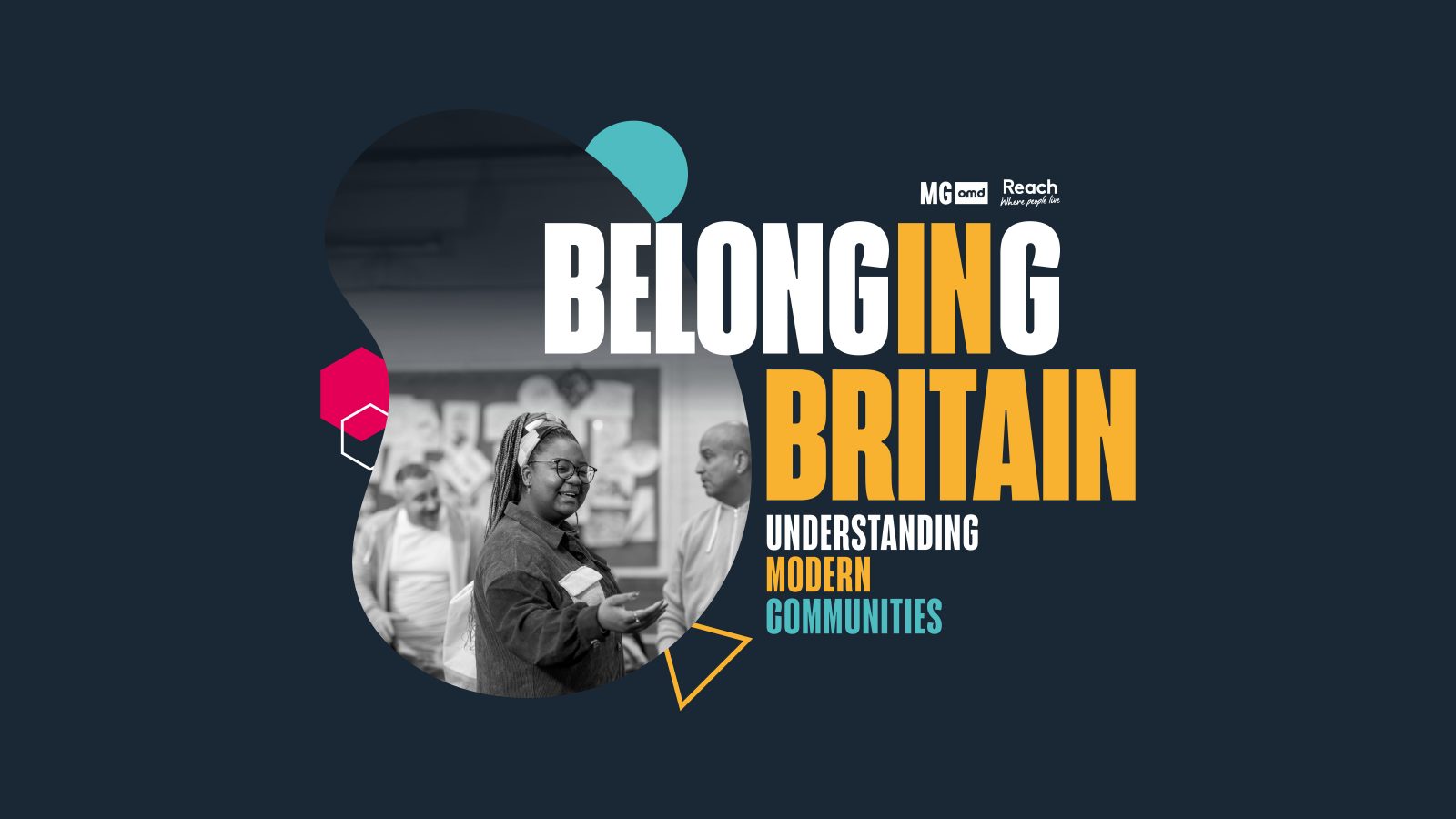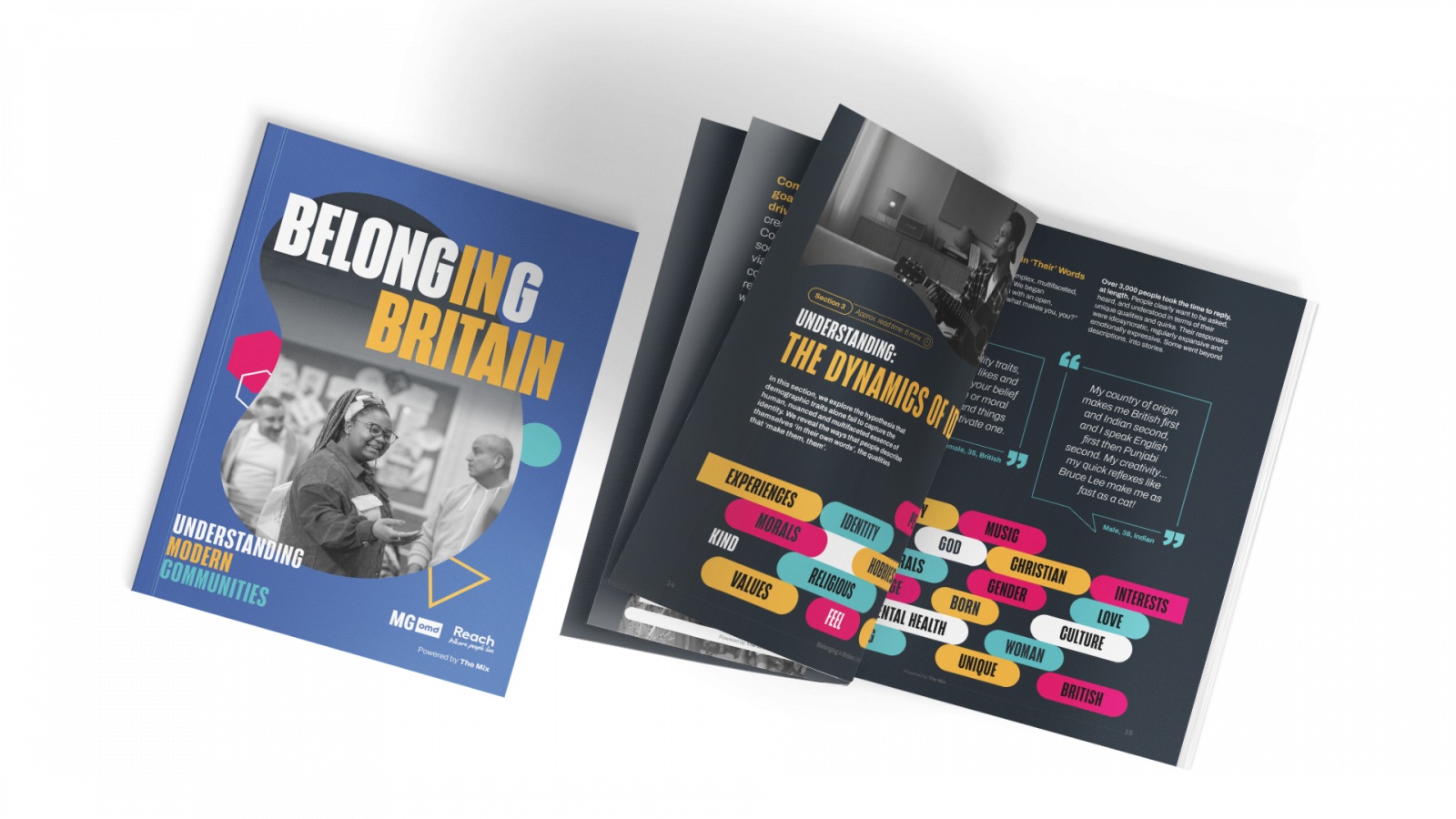Reach and MG OMD Launch Landmark Research: Belonging in Britain – Understanding Modern Communities
Reach and MG OMD have announced the launch of their groundbreaking joint research project, Belonging in Britain – Understanding Modern Communities, offering a bold new lens through which brands can understand identity and engage audiences in modern Britain.
At a time of cultural flux, where identities are increasingly multifaceted and trust in traditional institutions continues to decline, this research challenges outdated audience profiling rooted in demographics alone. Instead, it puts community – not category – at the heart of audience understanding.
Belonging in Britain explores what ‘community’ really means today, how people define and express their identities, and the powerful role that belonging plays in shaping trust, opinion, and behaviour.
“This research is a call to evolve how brands connect with people,” said Jenny Shevlin, Head of Planning & Insight at Reach. “It moves us away from one-dimensional assumptions and toward a richer, more human understanding of the audiences we serve.”
Through a blend of ethnographic film, nationwide surveys, and digital diaries, the study reveals five key typologies of communities – from shared interests and passions to experiences, beliefs, characteristics and geography – offering brands a toolkit to engage more authentically and ethically.
“Communities are where trust still thrives,” added Samantha Redmond, Behavioural Insight Business Director at OmniGOV, MG OMD. “By understanding the communities that matter most to people, and aligning with their values and motivations, we can foster deeper relationships and inspire meaningful action.”
- 96% of people trust opinions within their communities
- Identities are shaped by 7.2 factors – most beyond demographics
- 86% of people in communities are open to engaging with brands – if it’s done authentically
Don’t miss this opportunity to rethink how you connect with your audiences and lead the way in creating authentic, inclusive, and effective communications.
Download the research here.












